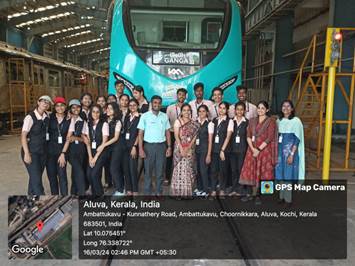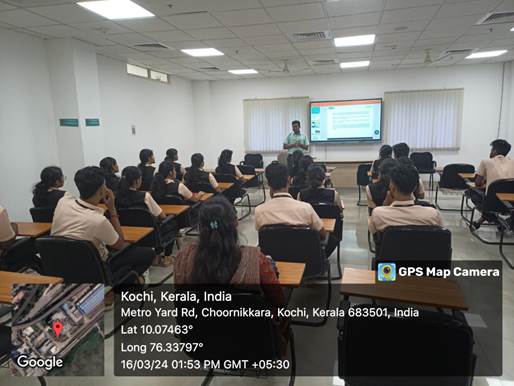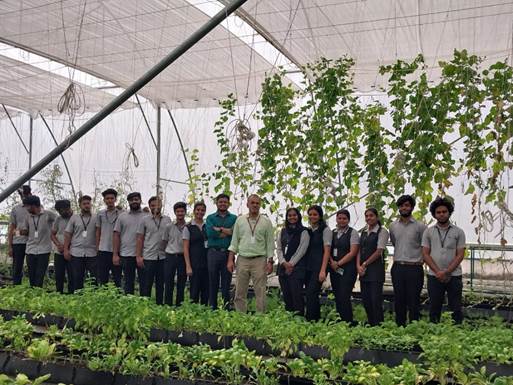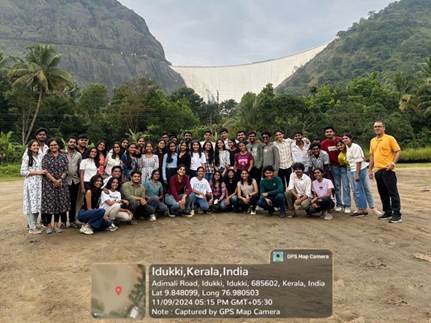Innovative Practices
Innovative techniques practiced in the department of civil engineering aim to enhance learning by integrating technology, hands-on experiences, industry interaction and interdisciplinary approaches. These techniques address the challenges of keeping education aligned with industry needs and engaging students in practical, real-world problem-solving. Following are some of the methods adopted in the department of Civil Engineering, RSET.
1. Project-Based Learning
- Introduced a separate module to familiarize the innovative techniques in civil engineering applications. Students are assigned with mini projects/assignments.
- Students work on practical projects such as designing eco-friendly buildings, sustainable infrastructure, or disaster-resilient system.
- Encourages teamwork, communication, and leadership skills through group projects.
- Partnering with construction firms or government agencies for projects and internships helps bridge the gap between academia and the industry.
- Introduced community-focused projects, such as designing affordable housing or improving rural infrastructure.
2. Experiential Learning
- Students visit construction sites, major civil engineering projects to observe engineering principles in line with their curriculum, namely dams, hydraulic structures, hydroponic farms, KMRL, etc.
- Students are assigned field-based problems, providing them with opportunities to engage with real-world situations.

Fig 1: Technical Visit to Kochi Metro Rail Limited, Aluva by S5 students

Fig 2: Technical Visit to Pidilite, Ernakulam by S5 students

Fig 3: Technical visit by S8 Elective group - Irrigation and Drainage Engineering at Hydroponics farm, Karimugal, Ernakulam

Fig 4: Technical visit to Idukki Arch Dam
3. Industry Interactions
- Workshops are conducted for enabling the students to interact with industry personals (Technonicol India Pvt. Ltd, Ultratech Cement).
- Department organizes expert lectures, delivered by industry persons to enrich the knowledge base of the faculty about the technology used in the industry.
4. Skill Development
- A Center of Excellence in Concrete Technology has been established in collaboration with Ultratech Cement to facilitate continuous student interaction with the industry.
- Students have opportunities to be trained in Building Information Modeling (BIM) software to manage construction projects virtually and collaborate in multidisciplinary teams.
- Faculty members update their domain knowledge by way of attending MOOC courses. These courses provided an opportunity to acquire knowledge about current technological developments in relevant fields and enhance the teaching and technical skills of the faculty which in turn improved the teaching and learning process.
- Students are encouraged to take courses on online platforms like NPTEL and Coursera to learn specialized skills from global experts.
5. Technical Events
- Students gain domain knowledge and engineering skill by way of participating in various technical events such as model making, contests like concrete mix design, designing public utility building, architectural design, material identification contests, and civil engineering quiz competitions, etc.
6. Sustainability Integration
- Included topics such as green building concepts, carbon footprint analysis, and life-cycle assessments in the curriculum.
7. Hybrid Learning Approaches
- Faculty members employ a diverse range of teaching methods, extending beyond traditional chalk-and-blackboard techniques to incorporate modern approaches such as audio-visual teaching aids and self-developed videos for lectures and labs.
- Flipped classrooms, where students study course materials at home and utilize class time for problem-solving and engaging in discussions
8. Continuous Feedback and Assessment
- Students feedback facilitated the evaluation of new teaching and learning approaches.
These innovations in civil engineering education ensure that graduates are well-prepared to address the rapidly evolving challenges of the modern world while fostering creativity and a passion for lifelong learning.
